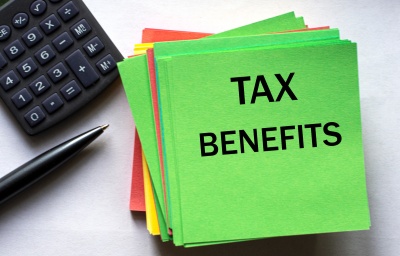

Spring is usually the busiest time of year for the housing market. This past year, it stayed busy right through the winter. After all, it’s hard to resist the lure of home offices, open spaces and big kitchens when you’re spending so much time at home.
If you've put a move on hold because you've heard it's competitive out there, here's why it's still a good time to get started:
Rates typically rise with the economy.
While commerce is just starting to rev up, interest rates are still near historically low levels.
"As both home-price growth and mortgage rates continue this upward trend, we may see affordability challenges become more severe if new and existing supply does not significantly pick up,” said Joel Kan, associate vice president of economic and industry forecasting at the Mortgage Bankers Association.
Marketwatch says that mortgage rates have soared to the highest level since June 2020.
Prices are going up.
So far in 2021, mortgage rates have risen over half a percentage point. Mortgage rates rose above 3% for the first time since last summer earlier this month. Rising mortgage rates are a reflection of the upbeat sentiment among investors, which has pushed long-term bond yields higher.
“Rising expectations around the boost to economic activity from a fresh round of fiscal stimulus, equal to more than one month’s worth of economic output, and reemerging consumers drove rates higher." Danielle Hale, Chief Economist at Realtor.com
Remember.. an asking price today may sound like a bargain tomorrow. Plus, buying now means you can start earning equity.
More people are getting vaccinated. Experts predict more homes will go on the market as people feel safer about moving.
According to Pew Research in a survey conducted in February 2021:
-
overall, 19% of adults say they have already received at least one dose of a coronavirus vaccine
-
another 50% say they definitely or probably plan to get vaccinated
-
taken together, 69% of the public intends to get a vaccine – or already has – up significantly from 60% who said they planned to get vaccinated in November.
By getting pre-approved for a loan and identifying location and home style now, you'll be ready when the right home is listed.
If you want to discuss the possibilities—including how to manage buying and selling at the same time—please reach out. We are happy to help!

Condos come with many perks, but they aren't for everyone. However, they can be a great way to dive into homeownership without worrying about all the upkeep that comes with a single-family home or townhome. And, condo owners can also take advantage of shared amenities, plus having professional management to take care of building maintenance is always a key benefit -or at least we think so!
Whether you should buy a condo, a home, or rent really comes down to where you are in life, and what your preferences are. Today, let’s tour the benefits of why a condo might be a great path to homeownership.
What is a Condo?
Short for condominium, a condo is a single unit within a multiple-unit property, usually an apartment style building or community. It can be one of many units in a shared structure like a high-rise building. You can also own your own unit, share common areas and amenities of the community with your neighbors. This includes perks such as: parks, pools, playgrounds, gyms, and other public spaces.
Most condos are part of a homeowner association (HOA) that makes and enforces rules for its property. Condo owners are primarily responsible for maintaining everything within their own unit and must pay mandatory membership fees for the upkeep of common areas and building maintenance costs.
Benefits of Condo Living
Less Maintenance
- One of the biggest benefits of living in a condo is that other people do the maintenance for you. So, if you dislike doing things such as mowing the lawn, trimming hedges, shoveling snow, or replacing siding (just to name a few), then condo living may be the way to go.
- Condos are also a good option for those who want to age in place as neighbors are nearby, experienced maintenance staff will take care of big repairs and there are community activities!
Desirable Locations
- Condos can often be found in downtown areas and represent the most cost-effective way to get the big-city lifestyle.
Security
- Some condos offer gated or have locked entries, doorkeepers or professionals for residents. If you live alone this could certainly be reassuring.
Amenities
- Dreaming of a pool or perhaps a fitness center? Many condo associations offer these types of resident amenities. If you’re an outgoing person, or simply like the hustle and bustle of having others around, a condo can be a great way to meet new people
Affordability
- Condos are less expensive. They are usually the more affordable real estate investment properties. The median sales price for a condominium in October 2020 was $273,600, according to the National Association of Realtors. In that same month, the median sales price for a single-family home was $317,700.
- Lower pricing can make condos a more affordable option, especially for first-time home buyers. While investing in a condo might be the more affordable option, you must consider condo fees. However, even with these costs, the average condo is smaller and thus cheaper than the average single family rental property.
- Bottom Line: Find an area you love and do some research. Remember, if you’re on a tight budget a condo can be a great first step.
Build Equity
- Your monthly mortgage payment builds home equity when you own a condo.
On the flip side… here are a few cons of living in a condo:
Homeowner Association Fees (HOA) & Rules
- Most condos offer services that other real estate properties do not like a fitness center, swimming pool, security system, etc. And, because of this, the HOA fee can range from $100 to $700 a month depending on location and other factors.
- At times, the condo owner’s association may levy a “special assessment,” or a significant fee charged to each condo owner to cover major updates or upgrades. For instance, replacing a roof, resurfacing a pool deck, or upgrading plumbing.
- With fees, come HOA rules. These rules apply to you and your tenants which include things such as parking, pets, renting out your condo, etc. Tip: Make sure to review all rules and regulations first to determine if it will be a good investment for you.
Lack of Privacy
- In a condo you have neighbors on the other side of your walls and perhaps above and below you as well. If you’re looking for peace and quiet, a condo may not be a good fit for you.
Parking and Storage Issues
- Some (not all) condos have assigned parking which may mean a longer walk to your front door.
- Storage is sometimes limited, and some condos do not have any outdoor storage space. Are these types of things important to you? We suggest making a “Needs and Wants” list to help you decide.
Rental restrictions
- If you’re planning on investing in a condo, make sure that you can rent it out as you like. Some condos may prohibit rentals, while others have specific rental restrictions.
Is buying a condo worth it & should you consider it?
- When evaluating if a condo is the right investment for you, it’s a good idea to take into account more than just the location and mortgage and factor in the monthly condo dues as well.
- You like the apartment lifestyle: If you’ve been renting and want to ease into homeownership, a condo could be a fantastic first step.
- You’re busy: If you have a crazy work schedule that requires lots of travel, a condo may be a good choice to avoid a lot of exterior upkeep.
- You’re older and want to downsize: Condos are great for older folks who don’t want to deal with property maintenance and all the hassles that come with it.
Bottom Line
Evaluate all the potential positives and negatives before you decide to invest in a condo. If you decide a condo is a good fit for you, make sure to read and review the condo’s association documents. And, before you agree to buy a condo, make sure they are in good financial condition.If you’re ready to take the next step into condo ownership click here to get your free pre-approval.
If you want to talk to one of our Loan Experts – reach out. We’re happy to answer any questions you may have.

Tax season is upon us. For some, the thought of the word “taxes” may spark anxiety, but for others, it may inspire hope of a tax refund. (Que the confetti!) If you’ve purchased a house this year, you might be excited about the possible tax benefits homeownership brings. What do all of these tax benefits include, you may wonder. Keep reading…
Some things related to your home can be claimed on your taxes to help get you more of a refund (aka more money in your pocket!) Are you wondering what these items could be? We’ll explain, but first, we want to point out that not only are there tax benefits for owning a home, but also for buying and selling, too! Let’s dive into the tax benefits of buying a home first.
You should always consult with your accountant or tax professional about whether these apply to you.
TAX BENEFITS OF BUYING A HOME
Mortgage Points
Mortgage points, also known as discount points are fees that are paid directly to the lender at closing in exchange for a reduced interest rate. Sometimes you may hear the phrase, “Buying down the rate”, which can lower your monthly payments. For example, 1-point costs 1% of your mortgage amount (or $,1000 for every $100,000).
If you paid to have your rate reduced you may be able to deduct the points (with the exception of very large loans). You also might be able to deduct the entire amount in one tax year and other times, you may deduct the points equally each year over the life of the loan.
For example:
- Purchased New Home or Built a New House: You may be able to deduct the points in the year you paid them IF the home is your primary residence.
- Home Refinances: Refinances may allow you to deduct points as well. However, if you paid points during the refinance, they will have to be deducted over the life of the loan.
- Home Equity Line of Credit: If you used this for home improvements you can count the points in the year you bought them.
- Purchased Second Home/Vacation Home: These points must be deducted over the life of the loan.
Moving Expenses for Active-Duty Armed Forces Only
These types of expenses are limited, meaning active-duty members of the armed forces are allowed to deduct this type of expense.
TAX BENEFITS OF OWNING A HOME
Mortgage Interest Deduction
A big benefit of owning a home is being able to deduct the mortgage interest you pay. This deductio n helps make homeownership affordable by reducing tax bills. Keep in mind, there are limits. Those depend on how much you have borrowed and when you bought your house. For instance, if your loan is less than one million dollars, the interest you pay is tax-deductible. If you have refinanced or have gotten a home equity line of credit (HELOC), those debts may be partially deductible as well. The mortgage interest on second homes is also deductible.
n helps make homeownership affordable by reducing tax bills. Keep in mind, there are limits. Those depend on how much you have borrowed and when you bought your house. For instance, if your loan is less than one million dollars, the interest you pay is tax-deductible. If you have refinanced or have gotten a home equity line of credit (HELOC), those debts may be partially deductible as well. The mortgage interest on second homes is also deductible.
Property Tax Deduction
Ah, the dreadful property tax! No matter where you live, this is something that you will always be paying. Your property tax is based on the value of the property and it is assessed by the local government to determine how much your property is worth and how it should be taxed.
The good news is, that if you pay taxes on your personal property and owned real estate, they may be deductible from your federal income taxes in the year you pay them. You can deduct up to $10,000 ($5,000 if married filing separately) in deductible property taxes, state and local income taxes, and sales tax.
Home Equity Debt
Interest paid of home equity debt may also be deducted, but only if the money is used “to buy, build or substantially improve the taxpayer’s home that secures the loan,” according to the IRS. For example, if you added an addition to your house, the interest is deductible. It’s not deductible if the debt is used to pay off credit cards.
Home Office Deduction
Do you work from home? A lot of us do these days. We have more good news! You may deduct expenses for your home office if you’re self-employed and use part of your home for work, to meet clients, etc. .jpg)
Green Energy Tax Credit
Have you gone green? You might be eligible for tax credits for improving your home with energy-efficient features and appliances.
Medically Necessary Home Improvements
Normally, you cannot deduct the cost of permanent improvements you make to your home. However, there is one exception. Some improvements can be deducted as medical expenses if their main purpose is medical for you, your spouse, or your dependents.
TAX BENEFITS OF SELLING A HOME
Capital Gain Exclusion .jpg)
If you’re thinking about selling your home, more tax benefits will come into play. For instance, if you sell your principal residence at a loss, you will not be able to deduct the loss on your taxes. However, if you sell again, you may be able to exclude some or all the gain from your taxable income. Capital gain (or loss) is the difference between the price you paid for it and the price you sold your home for.
Bottom Line:
Are you a bit more excited for tax season this year, especially if you’re a new homeowner? The thought of taxes may have haunted you in the past, but maybe not so much now knowing that homeownership has its tax perks! The only question now is, what are you going to do with your refund this year?
If you have any questions about homeownership or how you can take advantage of tax benefits don’t hesitate to reach out to us today!
Greenway Gives Back to The American Cancer Society in Honor of Kathryn

This month, Greenway Mortgage is giving back by donating $500 to the American Cancer Society in honor of Kathryn; who at 20 years old is currently battling an inoperable brain tumor.
Her sister Grace, along with the teachers at North Hunterdon High School have formed “Team Kathryn” which has raised over $9,000 to date, exceeding the original goal of $2,500. Team Kathryn is now shooting for the all-time fundraising record for this event - So, let’s help them do just that!
Message from Grace:
“My sister Kathryn could be called the mayor of North Hunterdon High School. She always has a smile on her face, positive words of encouragement for everyone she meets, and is the strongest person I know. This past year, she has faced a cancer diagnosis with strength, bravery, and the most positive attitude anyone could have. She is my biggest inspiration, and I hope to honor her this year by raising money through Relay. Thank you for your donations and for your continued support of my sister and family! Go Team Kathryn!” - Grace B.
By sharing this story, we hope that you’ll consider making a donation to Relay for Life in hopes that one day a cure for this disease will be found.
Make a donation to Team Kathryn today by clicking here.
Remember - every donation no matter how big or small counts! Thank you and please continue to keep Kathryn and her family in your thoughts and prayers.

Buying a home whether it’s your first time or you’re a seasoned home buyer, is a big deal! And at Greenway Mortgage, we want you to have a great home buying experience from start to finish.
With that said, the spring real estate market has arrived! With historically low interest rates and a lack of inventory, the spring market will be a competitive one for sure. How can you prepare? We’ve got you covered so you can get ahead of the spring competition. Keep reading…
You can start by downloading our Spring Guide to Buying a Home.
Being prepared helps you understand the language and the process of buying a home. Preparation helps you paint a clear picture of your financial situation and determine your buying power. It also helps you avoid pitfalls, particularly those related to documentation, that cause stress and slow down the process. It gives you confidence and helps you make better decisions.
Greenway Mortgage developed this guide for the sole purpose of helping our home buyers apply for a mortgage and search for a home with confidence.
Our guide is loaded with information, resources, checklists and interactive calculators that you can use as a resource throughout the home buying process.
Inside you’ll find:
- The 5 stages of the mortgage process
- How a pre-approval can be your secret weapon to buying the home of your dreams
- How to avoid documentation mistakes that complicate the mortgage process
- How your credit score can impact your mortgage qualification
- Insider details about how to close like a boss
- Checklist that you can use to evaluate any property or neighborhood in which you're looking
CLICK HERE TO DOWNLOAD YOUR FREE COPY TODAY.
Happy House Hunting!




.jpg)


